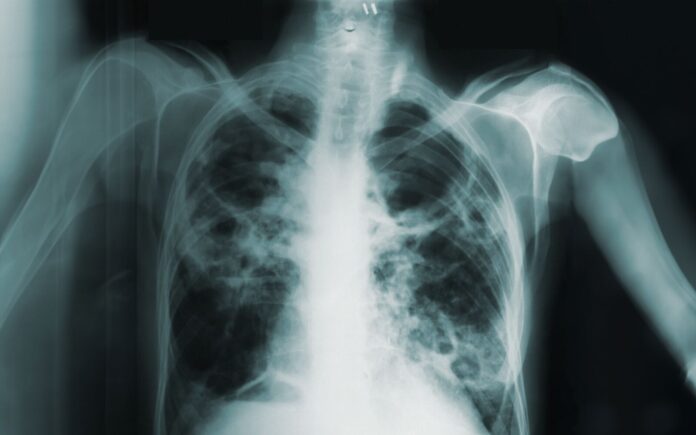The Ministry of Health officials in Adjumani district have reported an increase in tuberculosis (TB) cases among the refugee communities and nationals.
Reports have registered 77 cases of multi-drug-resistant TB (MDR TB), which is caused by TB bacteria that are resistant to at least isoniazid and rifampin, the two most effective TB drugs.
According to Dr. Dominic Drametu, District Health Officer of Adjumani, some of these cases reported are due to low-level detection, and 77 cases are due to multi-drug-resistant tuberculosis. He added that 76 cases are linked to point-of-care tests (POCTs), which facilitate early detection, immediate treatment, and reduced transmission of TB disease, while 16 patients in active care are receiving a combination of antibacterial medications for a period of six to 12 months.
He made these remarks on April 11, 2024, at the Adjumani District Health Offices while speaking to district health workers.
“Early detection of this disease is still low as a result of over reliance on TB Gene Xpert machines; this is a rapid test that can concurrently identify Mycobacterium tuberculosis and resistance to rifampin from sputum,” Dr. Drametu said.
In an interview with Emmanuel Ainebyoona, the spokesperson for the Ministry of Health, he acknowledged the prevalence of tuberculosis being common countrywide, saying that its infection rates are also high and people need to take up prevention measures, adding that those diagnosed should adhere to treatment.
“A lot of testing is needed; people need to take off two weeks to get tested for TB. Early detection is very important, as is prevention and avoiding living in congested settlements,” Ainebyoona said.
He added that those in charge of the settlements should ensure that they take up measures to prevent further spread by de-congesting, adding that, since TB is everywhere, preventative measures need to be in place and adhered to.
The World Health Organization (WHO) conducted a mid-term review of Uganda’s response to tuberculosis, which remains one of the world’s deadliest infectious killers and a growing challenge in Uganda, with close to 240 people falling ill with TB and approximately 30 losing their lives. More than half of TB-related deaths are among people living with HIV.















